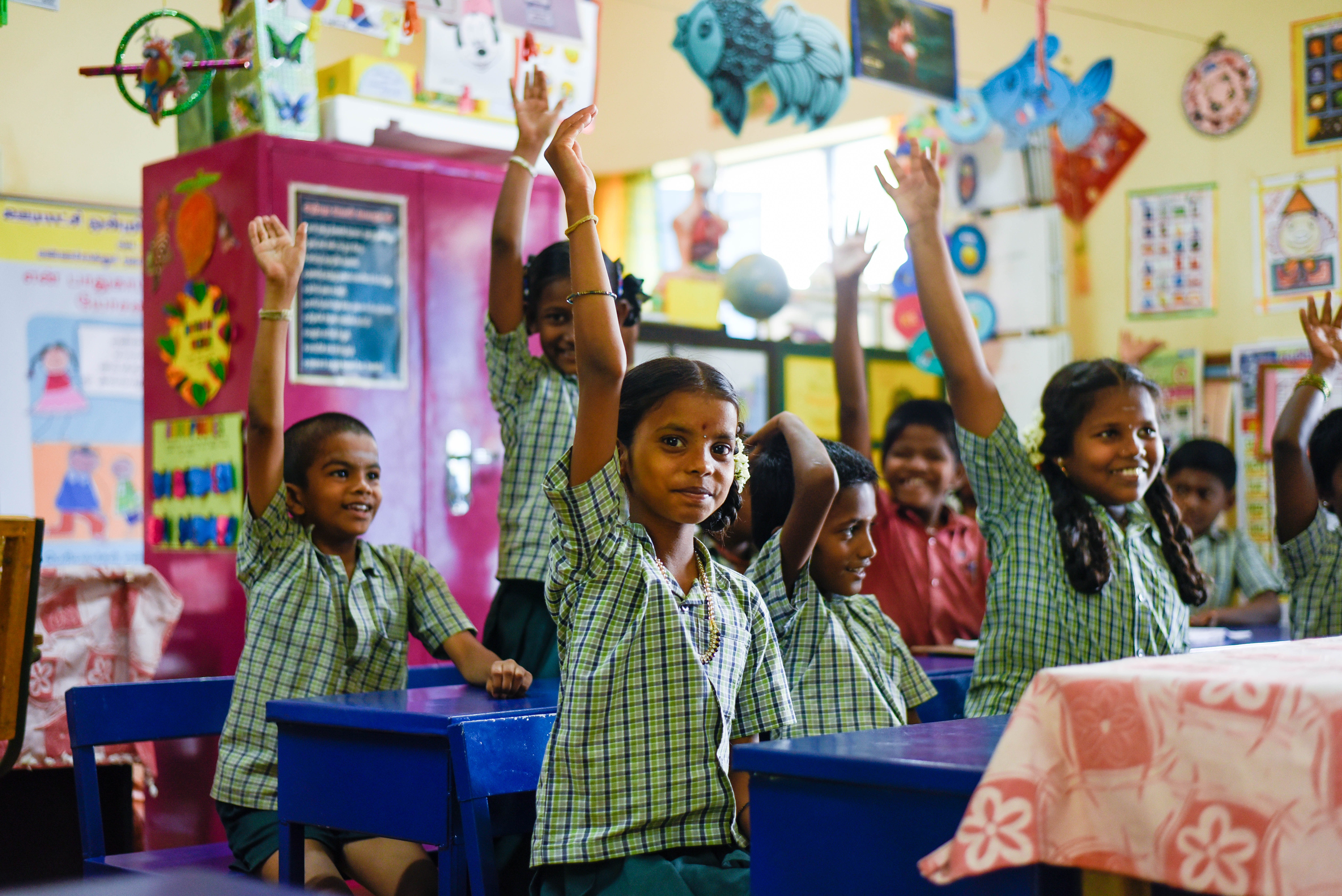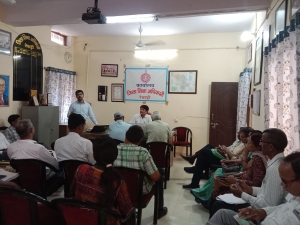Data from the national-research such as ASER reports from 2005 to 2022 suggest worrying results on learning poverty in Tamil Nadu. In grade 3, only 4.8% of students can read a grade-level text and 18.7% of students can recognise numbers from one to nine. The state even ranked 23 in literacy and 22 in numeracy, among all 28 Indian states, as per ASER 2022 data.
This conundrum of poor learning outcomes in primary grades in a state that is leading on many other development indicators required investigation before jumping to conclusions. At the first glance, most things would be in place upon visiting any classroom in Tamil Nadu. A well-lit space, walls filled with artefacts, the presence of a teacher and about 20 children on an average. While this sight may not do justice to the state of learning outcomes in the state, on careful examination, one would find that the teacher is teaching three grades within the same four walls, navigating different textbooks (each with different pacing and topics) and dealing with 20 learners with diverse needs. This is a reality with ~90% of the teachers in the state. These teachers, especially those handling multiple grades, identified a lack of resources to cater to multi-grade classroom settings and inadequate planning time as impediments to effective teaching.
Ennum Ezhuthum Mission was launched in 2022 by the Government of Tamil Nadu with the aim of ensuring every child in government schools of Tamil Nadu are able to read with comprehension and have basic arithmetic skills. With the mission pioneering a pedagogical shift towards activity-based experiential learning, student learning materials were revised to be level-based instead of grade-based. In addition, teachers were equipped with handbooks to aid their classroom instruction. The innovation in these levelled-materials are based on the Learning Outcome Framework (LOF) that is both scaffolded and spiralled. This allows a teacher to teach the same concept to children from different grades in a classroom, thereby significantly easing teacher activities and increasing effective student learning time. The mission introduced levelled student workbooks, a teacher guide, a learning kit and a host of other pedagogical instruments that aid in nurturing a multimodal learning environment in June 2022.
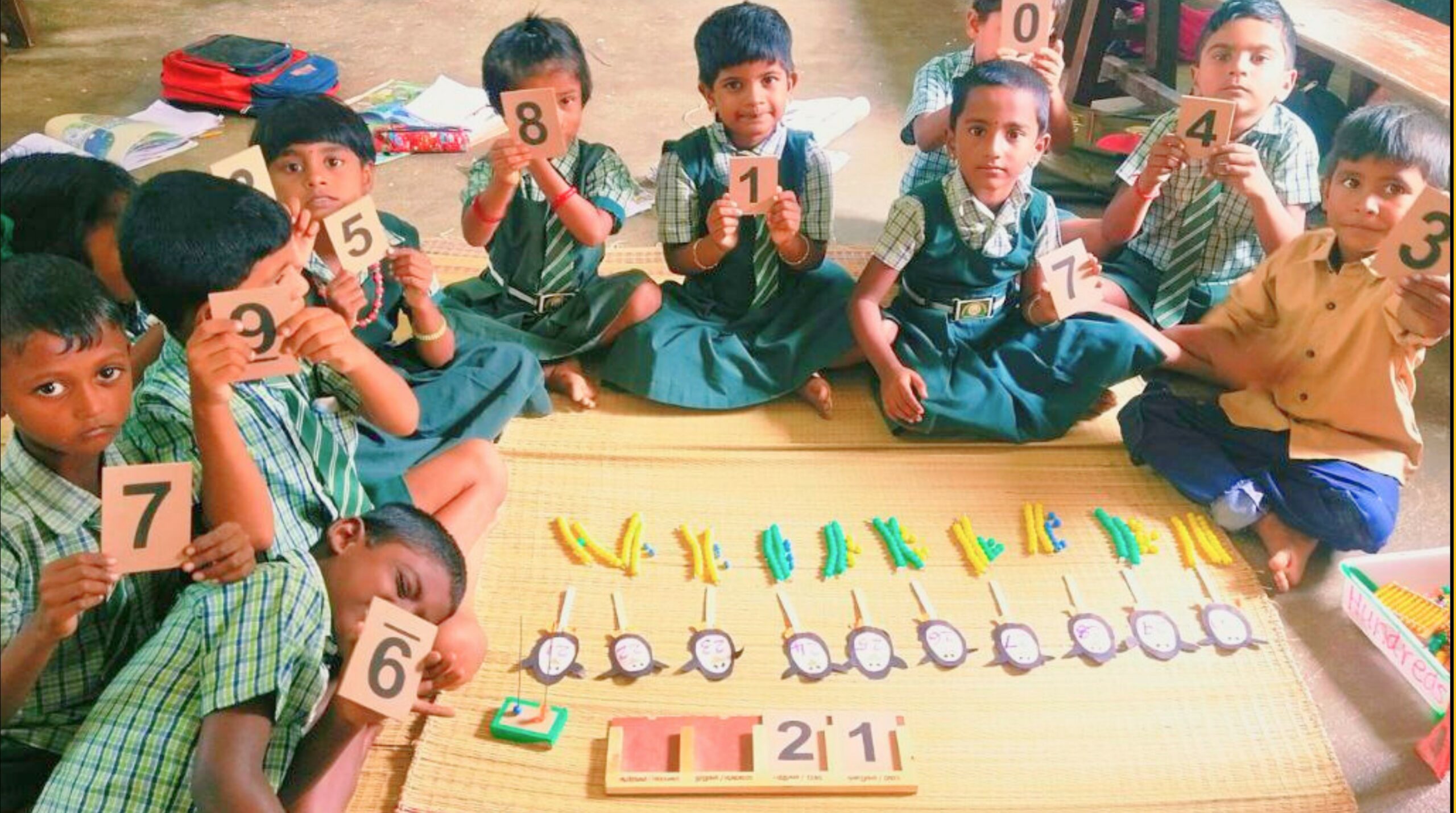
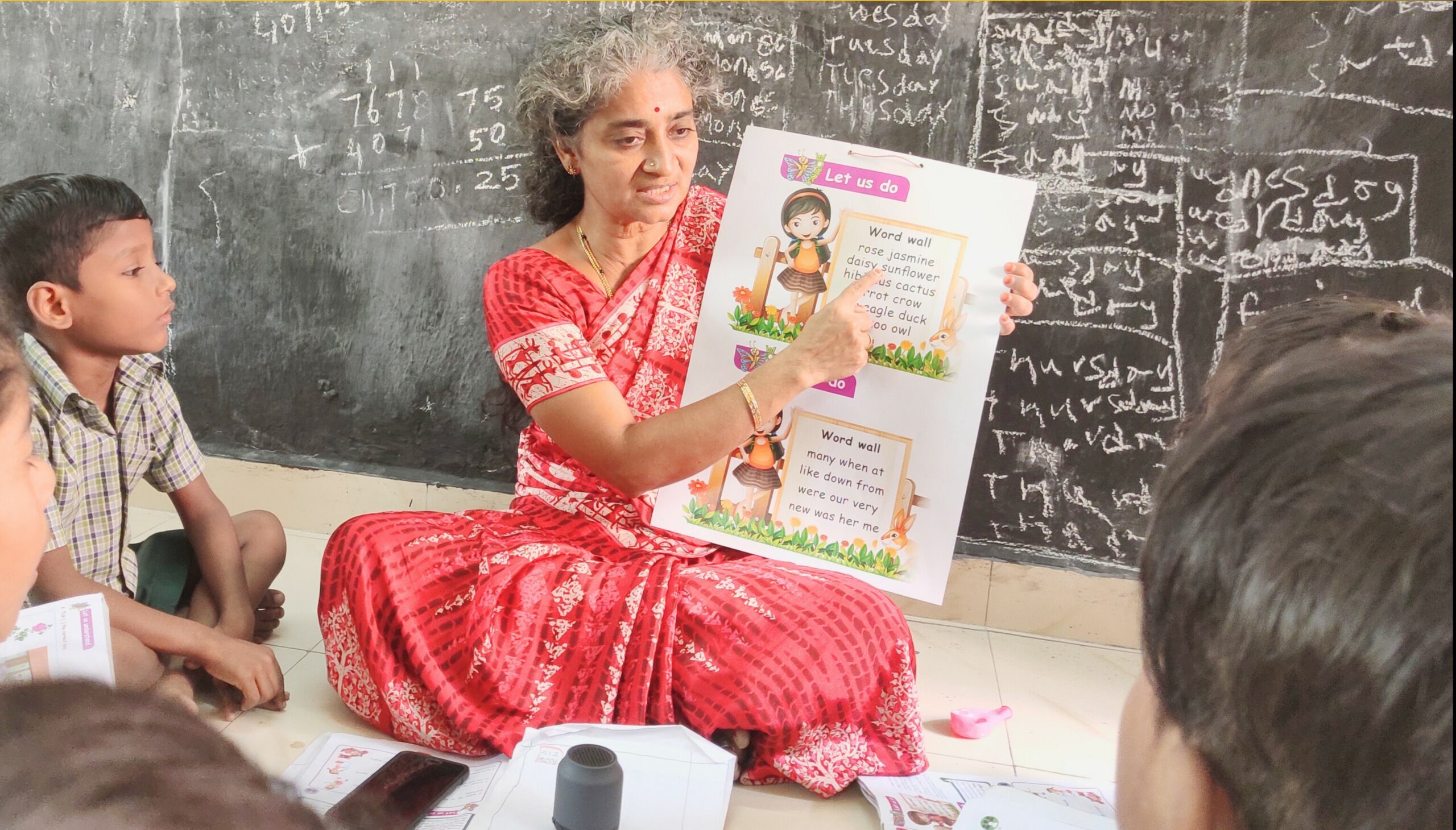
R: Teacher handbook being used for easier planning and maximum engagement in the classroom
All the new learning materials in the state are colour-coded (Blue for Level 1, Yellow for Level 2 and Green for Level 3) to match the learning levels of students and come with a variety of engaging equipment to improve learning experiences as opposed to the traditional chalk and talk method of lesson delivery. As observed in other national and international contexts, level-based student workbooks’ adoption has also been relatively higher.
The educational transformations anchored by Ennum Ezhuthum are deep rooted in the vision of the Government of Tamil Nadu that focuses on bringing about change at different and all levels. State officials observe classrooms regularly using a pre-created framework to provide feedback on TLMs and teaching techniques to understand the needs of teachers and students. In 2023, more than 2.26 lakh classroom observations across 38 districts were completed by government officials, with 80% of teachers observed at least once annually. Every teacher, on an average, underwent at least five observations in the year. By harnessing data-driven insights from observation tools, necessary interventions were made to streamline the curriculum and mission design.
In the early phases of implementation, teachers voiced concerns about the time required to complete activities in the teacher handbook. They even expressed their apprehension on whether students’ inability to complete workbook exercises would reflect as inefficiency or ineffectiveness of teachers. In response to this, tailored training sessions for administrators were conducted and structured engagement mechanisms were set in place for both teachers and parents. This included the following:
- In order to better understand the time-on-task by teachers, the education department created an experimental environment to understand teacher challenges. Based on the findings, they reduced the number of teacher activities by 38% to ensure they are able to not only complete the lessons on time but are also able to focus on the quality of the outcomes. This greatly alleviated the teachers’ load of implementation.
- All administrators, starting from the Chief Educational Officers to Cluster Resource Persons, were trained on the mission, where they were made to experience classroom demonstrations as part of their training. This exercise ensured that they understood the purpose of level-based learning and helped the system to move away from academic compliances to mastery of competencies. Additionally, clear communication and integration strategies dispelled initial apprehensions surrounding student workbooks and textbooks. Through Telegram groups, teachers could collaborate, clear doubts, share best practices and innovative teaching strategies. Every stakeholder (teacher to administrator) could now meaningfully engage every week to bring a value-based alignment in the system.
- Lastly, parents are regularly invited to observe classrooms and engage in the learning process of their children. They discover how the teachers use the handbook, the levelled workbooks and Ennum Ezhuthum kits to understand the need for level-based learning. This ensures that the parent is aware of their child’s learning needs, paving the way for any additional intervention or support that the parent could contribute towards to strengthen learning for children.
Re-imagined teaching and learning materials have enabled thousands of classrooms across Tamil Nadu to meet students at their levels of skill and interest. Students are now able to learn at their own pace and in ways that resonate with them personally – whether through visual demonstration, tactile experiences, or auditory stimuli.
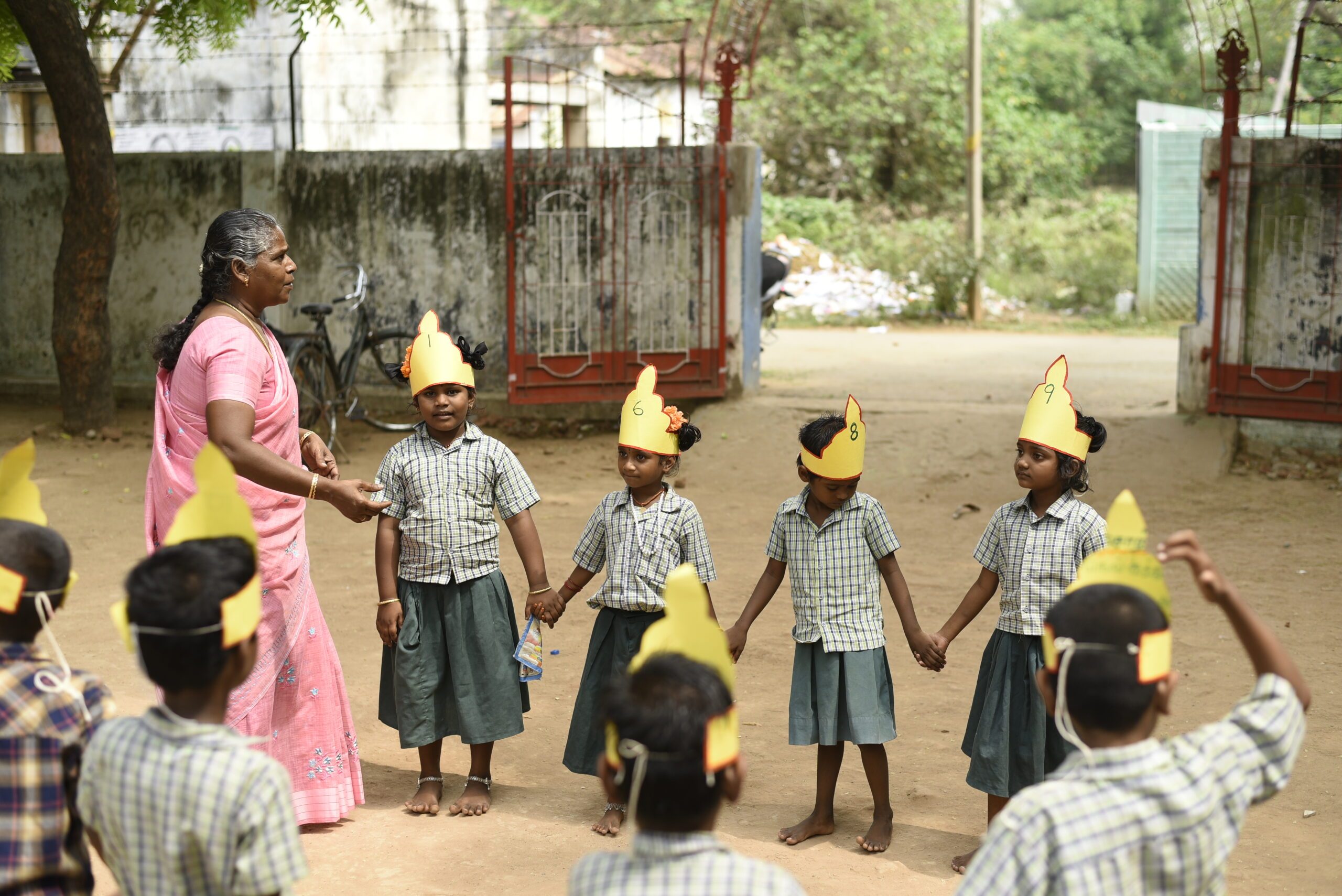
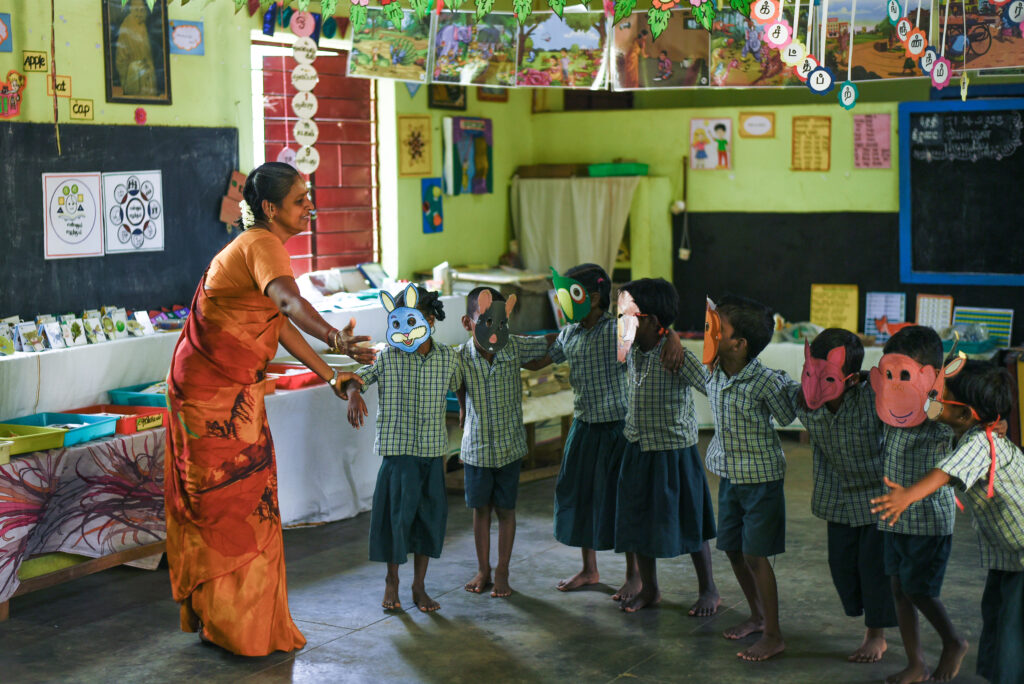
One of the teachers in Thiruvannamalai even shared her reflection on the Ennum Ezhuthum classroom and how teaching second grade students has changed from what it used to be. Once-disinterested students now run to grab TLMs and she even tailors lessons for her students who are now enthusiastic to learn, she shared. Examples like this are testament to the dedication of thousands of teachers across the state and administrative support to make classrooms in Tamil Nadu, once again, a thriving environment for every child.
